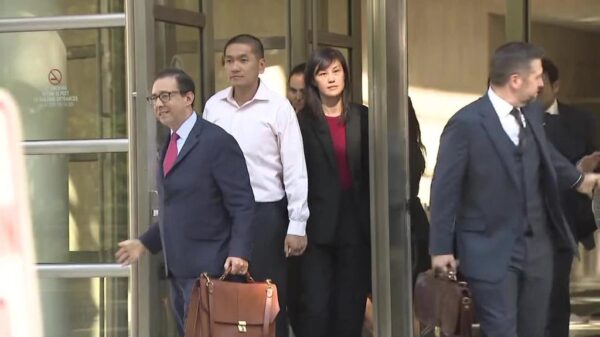The Massachusetts Secretary of Education, Patrick Tutwiler, has expressed concerns over proposed federal cuts to education funding, emphasizing the need for increased accessibility to higher education. During an interview with WBZ-TV, Tutwiler highlighted that education should serve as a “springboard to people’s dreams,” advocating for continued federal support for educational initiatives.
Cuts to federal education funding are significant, with the House of Representatives recently approving reductions that could impact billions of dollars allocated for student aid over the next decade. These changes include the elimination of certain loan programs and limitations on others. While the Senate is currently opposing these measures, Tutwiler believes that Massachusetts serves as a leading model for making education more accessible, and he hopes for a collaborative effort with the federal government to maintain this standard.
Cellphone Access and Student Well-Being
In addition to funding issues, Tutwiler discussed the challenges posed by cellphone access in schools. He is optimistic that the Massachusetts House will align with the Senate in approving a statewide ban on student cellphone use during school hours. “Cellphones have become challenging in schools,” Tutwiler stated, noting their potential to distract students and contribute to mental health issues such as depression and anxiety.
While some parents argue that they need a way to contact their children during emergencies, Tutwiler countered that, in his 26 years in education, he has never encountered a situation where communication could not be facilitated. He emphasized that existing systems enable parents to reach their children when necessary, suggesting that the focus should instead be on minimizing distractions in the classroom.
Addressing Teacher Strikes
The discussion also touched on the recent trend of teacher strikes in Massachusetts, despite a state law prohibiting such actions. Last year’s strikes disrupted education in several cities and towns, a situation Tutwiler hopes to avoid in the future. He expressed a desire for “robust” bargaining processes between communities and educators to reach agreements that keep students in school.
“Students need to be in school, and we’ve seen the pain and the disruption that it causes when they’re not,” he remarked. While he supports fair compensation and improved working conditions for teachers, Tutwiler firmly believes that strikes are not the appropriate means to address grievances, especially when students’ education is at stake.
Furthermore, Tutwiler highlighted the administration’s efforts to reform literacy education, advocating for a return to phonics-based curricula. His comments reflect a broader commitment to enhancing educational outcomes in the state.
As Massachusetts navigates these critical educational issues, the focus remains on creating an environment where all students can thrive, supported by effective policies and adequate funding. The interview with Tutwiler can be viewed on demand, and discussions on these topics continue every Sunday morning at 08:30 for the weekend edition of Keller At Large.



































































